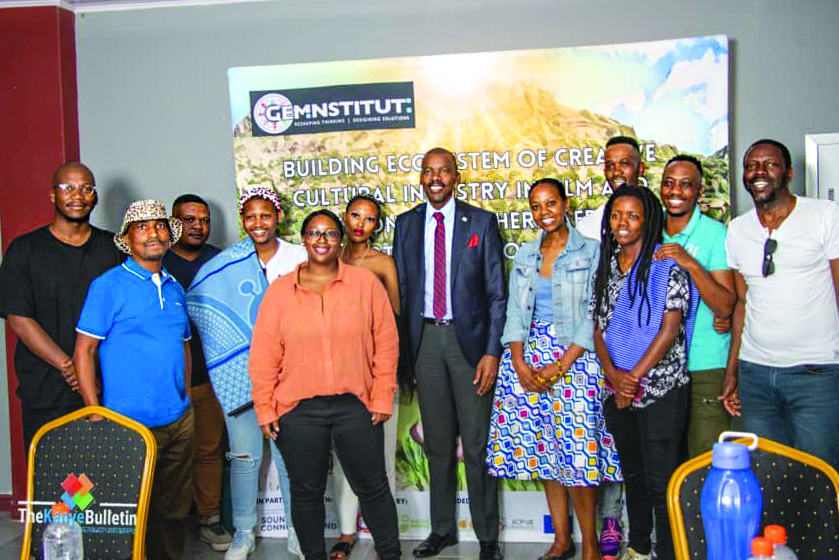Zwelakhe Lephoma
In the fast-evolving landscape of artificial intelligence (AI), the voices shaping the future are predominantly from the Western world. This creates a significant threat: the potential exclusion of Africa from the algorithm designers, coders, and AI writers of tomorrow. Such an exclusion carries profound implications for cultural representation, the perpetuation of biases, and the equitable development and application of AI technologies.
The Problem of Coding Bias
AI systems are not just technical constructs; they are deeply influenced by the data they are trained on and the perspectives of their creators. When these creators are predominantly from homogeneous backgrounds, their cultural contexts and biases inevitably seep into the AI’s decision-making processes. This phenomenon is known as coding bias.
In the context of Africa, this means that the rich tapestry of its cultures, histories, and societal nuances may be inadequately represented or entirely overlooked in AI systems. This absence can lead to a myriad of issues, from misidentification and misrepresentation to outright discrimination in AI applications ranging from facial recognition technology to social media algorithms.
Cultural Exclusion and Its Consequences
The underrepresentation of African perspectives in AI development can reinforce and even exacerbate existing cultural biases and borders. For instance, facial recognition systems trained predominantly on Caucasian faces have been shown to perform poorly on people of African descent. This technological blind spot isn’t just a technical glitch; it reflects and reinforces historical patterns of exclusion and marginalization.
Moreover, AI systems are increasingly being used in critical societal functions such as law enforcement, hiring practices, and social services. If these systems are biased, they can perpetuate systemic inequalities, leading to a future where Africans face disproportionate disadvantages simply because the algorithms governing these processes do not recognize their unique cultural contexts and needs.
Impacts on Identification and Profiling
Identification and profiling are areas where the lack of African involvement in AI design is particularly concerning. AI systems used for surveillance and identification need to be trained on diverse datasets to function equitably. However, without African input, these systems are prone to errors when dealing with African populations. Such errors can have severe consequences, including wrongful arrests, misdiagnosis in medical applications, and unfair treatment in various administrative processes.
The impact extends to differentiation modules in society as well. These modules, which rely on AI to make distinctions between different groups for services like targeted advertising or customer service, can inadvertently reinforce cultural biases. For instance, if an AI system doesn’t recognize the cultural nuances of African communities, it may fail to cater to their specific needs, resulting in services that are irrelevant or even offensive.
The Need for Inclusivity in AI Development
To mitigate these risks, it is crucial to include African voices in the AI development process. This involves not just employing African coders and designers but also ensuring that African data is part of the training datasets and that African cultural contexts are considered in algorithm design.
Organizations and governments must invest in education and infrastructure to build a robust pipeline of African AI talent. Collaborations between African and international institutions can foster an inclusive AI ecosystem where diverse perspectives are valued and integrated. Furthermore, there should be a concerted effort to create and maintain datasets that accurately represent the diversity of African societies.
Conclusion
The exclusion of Africa from the realm of AI development is not just an oversight; it is a significant threat to the equitable advancement of technology. As AI becomes increasingly integral to our lives, ensuring that it is inclusive and representative of all cultures is paramount. Only by addressing these disparities can we hope to build AI systems that serve humanity fairly and justly, free from the biases and borders that have historically divided us.
Summary
- In the context of Africa, this means that the rich tapestry of its cultures, histories, and societal nuances may be inadequately represented or entirely overlooked in AI systems.
- This absence can lead to a myriad of issues, from misidentification and misrepresentation to outright discrimination in AI applications ranging from facial recognition technology to social media algorithms.
- If an AI system doesn’t recognize the cultural nuances of African communities, it may fail to cater to their specific needs, resulting in services that are irrelevant or even offensive.

Your Trusted Source for News and Insights in Lesotho!
At Newsday Media, we are passionate about delivering accurate, timely, and engaging news and multimedia content to our diverse audience. Founded with the vision of revolutionizing the media landscape in Lesotho, we have grown into a leading hybrid media company that blends traditional journalism with innovative digital platforms.







Equitable AI: Advancing technology with African inclusivity –
bhfbekl http://www.g8rz4v2w53e7sn6tm3vj5463g1f71gv0s.org/
abhfbekl
[url=http://www.g8rz4v2w53e7sn6tm3vj5463g1f71gv0s.org/]ubhfbekl[/url]